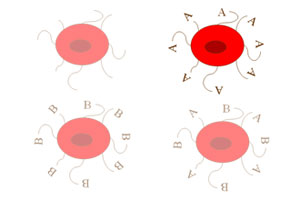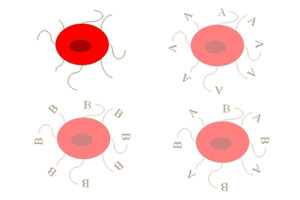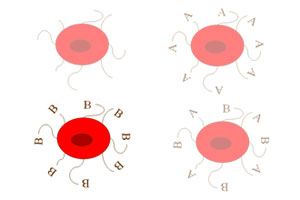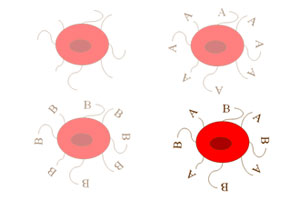BioPhenotype
Biology: (from Greek - βίος, bios, "life"; , -logia, study of) is the natural science concerned with the study of life and living organisms
Phenotype: The entire physical, biochemical and physiological makeup of an individual as determined both genetically and environmentally

These molecules play many roles in the function of your cells, and therefore in the function of you as a whole, including what foods are right and wrong for you, what type and how much exercise you need, and even in the way your mind processes information. The BioPhenotype tells us much about you, and acts as a guide in making your prescription of diet, exercise, supplements and therapies.

BioPhenotype A corresponds with blood type A.
The greatest strength, and at the same time the greatest weakness, is the mind and nervous system.

BioPhenotype F corresponds with blood type O.
High animal protein consumption and heavy exercise are both necessary to keep healthy.

BioPhenotype G corresponds with blood type B.
In the middle between the A and F. An analytical type, balance in diet and lifestyle is the key health.

BioPhenotype AG corresponds with blood type AB.
The most rare of the types, this is a combination of A and G types.
Bear in mind that we are all unique individuals and the extent to which the descriptions ring true depends on many factors, such as your upbringing, and your current state of health.
Every cell in your body is surrounded by a membrane that is coated with specific chemical markers, called glycoproteins. Collectively, these markers are called the glycocalyx, or sugar coating, by biologists; chemical sugar molecules projecting out from the surface of every cell. Biologists are interested in them because they are discovering that they play key roles in the functions of the cell and your body as a whole. These sugar molecules intermingle as cells touch each other, and every molecule that enters the cell, be it nutrient or chemical pollutant, contacts them first. They are known to affect cell to cell communication, and they interact with the immune system as well.
We at Human Nature Natural Health are also interested in them, as we have learned to use knowledge of some of these sugars as a guide in learning about you and how your body functions. You may already be familiar with one aspect of it - your blood type is actually a cell surface sugar, a chemical marker found on each cell. You have up to two million molecules of your blood type sugar per cell, and even free floating in the blood, saliva and every fluid in your body. Research in the medical literature has recognized since the 1920's that there is a difference in distribution of certain diseases according to the different blood types.








